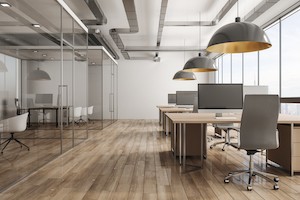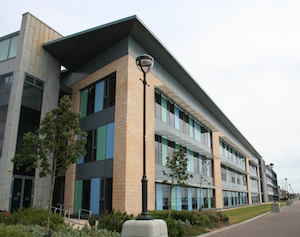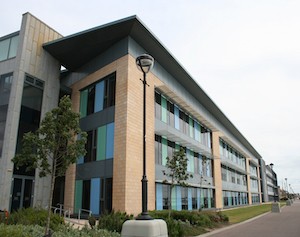View the Eurocell entry on BPindex
Almost half (49%) of UK residents believe that the traditional “office” will soon become obsolete as home and remote working continues to increase, according to a new report.
A further 60% said that the design of office buildings should factor in the possibility that they may need to be converted into homes in the future.
The survey of 1,000 UK residents has been published by Eurocell plc, the UK’s leading manufacturer, distributor and recycler of PVC-U window and door systems.
Respondents also highlighted a number of design trends that they felt were critical for the workplaces of the future:
- 52% said designs that maximise natural light
- 44% said buildings with good ventilation
- 41% said windows that open
- 34% identified soundproofing
- 31% said access to outdoor spaces
- 25% said communal areas
Set against a backdrop of the ongoing housing crisis – and the measures put in place by the government to tackle it – the Future Communities report reveals a range of consumer opinion on how the communities of the future should look.
 In contrast to a waning popularity for office buildings and traditional work spaces, there was a clear preference for the construction of schools as cornerstones of the community. 81% of respondents stated that it’s important to include educational buildings within new housing development plans. A further one in three (30%) people stated that not enough is being done to implement this as it stands.
In contrast to a waning popularity for office buildings and traditional work spaces, there was a clear preference for the construction of schools as cornerstones of the community. 81% of respondents stated that it’s important to include educational buildings within new housing development plans. A further one in three (30%) people stated that not enough is being done to implement this as it stands.
The report includes insights from five architects from practices BDP, Stanton Williams, TOWN and Urbanist Architecture. The panel discussed the potential for buildings to be built with a residential end-purpose in mind.
Analysing the findings, Doriano Chiarparin, architect at Stanton Williams, commented: “I’m not sure about the ability to repurpose every single workplace to make it become residential but I definitely think that we need to have loose fit buildings, so that there are spaces within the development that could become a shop, could become a workshop, could become a studio, could be something that if people set up a business they have a place to go.”
 The incredible rise of co-working spaces points to a step-change in the way that traditional office jobs are undertaken and this has been reflected in the findings of our research. Communities are no longer simply places to live but – given that many millions of people now work more flexibly or remotely – they are also places that need to accommodate for the 9-5, too. It’s vital that the construction industry takes note and tailor future residential developments to fit accordingly.
The incredible rise of co-working spaces points to a step-change in the way that traditional office jobs are undertaken and this has been reflected in the findings of our research. Communities are no longer simply places to live but – given that many millions of people now work more flexibly or remotely – they are also places that need to accommodate for the 9-5, too. It’s vital that the construction industry takes note and tailor future residential developments to fit accordingly.
The research is part of Eurocell’s ‘Future Communities’ report which can be downloaded in full here.


